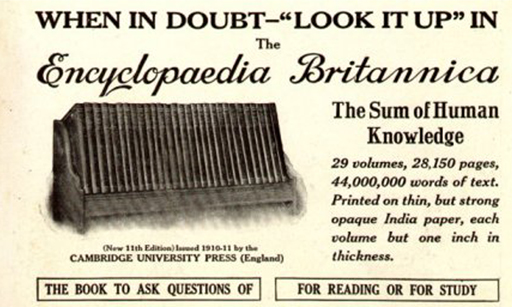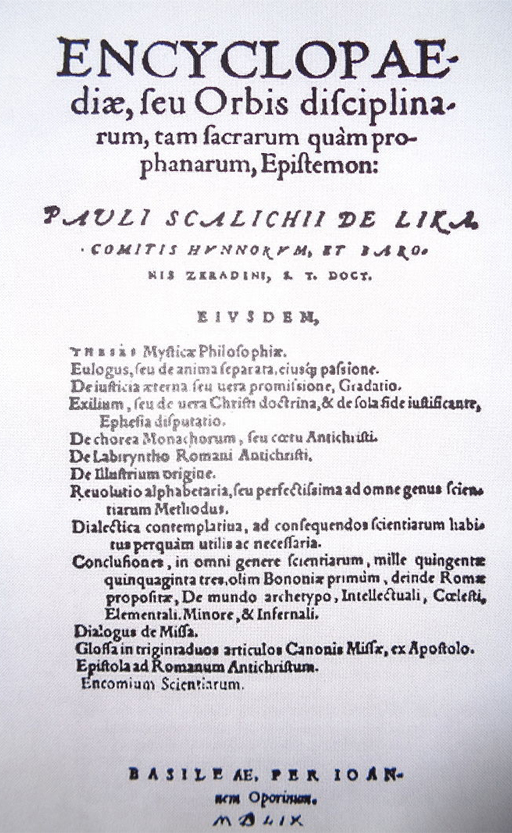3 A short history of encyclopedias
The idea of gathering together all human knowledge goes back a long time, at least as far as ancient writers such as Pliny and Aristotle. During the Middle Ages, many encyclopedias were compiled by Muslim, Chinese and European authors (Figure 3).

The invention of printing made it possible for many more copies of encyclopedias to be produced. The word encyclopedia seems to have been used first in 1559, when Pavao Skalić published his Encyclopaedia, or Knowledge of the World of Disciplines (Figure 4).
The 18th century brought the first modern encyclopaedias. One of the best-known is the Encyclopaedia Britannica, first published in Edinburgh 1768–1771.
From its original three volumes, the Britannica [Tip: hold Ctrl and click a link to open it in a new tab. (Hide tip)] has grown today to 40 million words, covering about half a million subjects. From 2010 it was no longer produced in printed form and has become an online encyclopedia.
Activity 6 Visit Britannica
Visit Encyclopaedia Britannica online and browse some of the ‘Popular on Britannica’ articles.
Traditionally, modern encyclopedias like the Britannica set out to be authoritative (Figure 5). Most articles were written by recognised experts in their field. The more than 4000 contributors have included 110 Nobel prize-winners. Britannica and similar encyclopedias became famous as reliable sources of trustworthy information, a sort of ‘gold standard’.

With the rise of the internet, a different kind of encyclopedia emerged. The best known of these is Wikipedia, which started in 2001, but there are many others, often specialising in particular subject areas.

